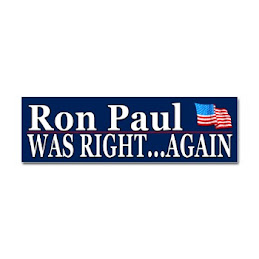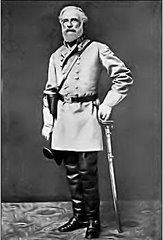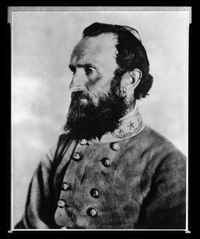This is a paper I wrote for a school class (Government and Economics) concerning the purpose of a Constitutional Government in America.
Why a Constitutional Government?
Perhaps the most important, but yet most overlooked document in America today, is the Constitution. Many government officials take an oath on the very Bible to uphold the Constitution, only to break it severely. But it is the Americans that elect these people into office, only to believe lies not permitted by the Constitution. How could both every-day Americans and our leaders be so blind? And what is the purpose of a Constitutional government, anyway?
There are many angles one could take as to why we have a Constitutional form of government. But it is probably best to begin by having a basic understanding of what government is. First, both the idea of government and the idea of limited government are theistic ideas. We have government to secure the self-evident rights we have, most commonly referred to as life, liberty, property, and the pursuit of happiness. These rights are self-evident and logical. However to an atheist, there is no ground to justify morality on pure logic. Therefore, having a government to use force against citizens using force to damage the self-evident rights of others is only consistent in a theistic worldview.
However the very idea of a limited government is also theistic. In an atheistic worldview, the only purpose of government would be for it to become their "God." The government would then become the moral police of the world, and essentially become communistic in the economy. But the people who comprise the government are sinful people, and it would be dangerous to give them too much power. The idea of a limited but yet strong government gives rise to people living their own lives, pursuing their own dreams, having their own religious beliefs- all without taking away these rights of other people. This is made so clear in the Declaration of Independence, in saying, "We hold these truths to be self-evident, that all men are created equal, and that they are endowed by their creator with certain unalienable rights, that among these are life, liberty, and the pursuit of happiness. That to secure these rights, government are instituted amongst men…"
The essential purpose of government is to guard the land in which it governs, and protect the rights of its inhabitants. The government should be strong, and the government should be limited. Essentially, government is force. This is essentially what governments exist for. However there is some variation of different bodies of government relative to the time, the government jurisdiction, and related bodies of government near it. There is not one absolute "method," to anything that government is, should do, or should not do. Therefore, it becomes essential to look at the United States today and in the day it was founded, as to why it holds a written Constitution.
The government of the United States is complex and sophisticated. The government was founded by the common causes of the colonies who were dissolving their allegiances to the British government. Originally, all colonies were very skeptical of having any sort of general government around them. However each colony wanted to be stronger in itself. For this reason, the colonies compromised some of its powers to a central government. The founders wanted to make this government a government that would make the colonies stronger, but also keep as much power in the colonies as possible. Before drafting the Constitution, the founders originally drafted the Articles of Confederation.
The founders created a sort of mixed government. It is hard to use just one word or phrase to describe the government in America. Contrary to popular belief, America is not a Democracy, although there are some democratic principles that make up what American government is. But if there is one phrase to describe American government after the drafting of the Constitution, it would be as a constitutional federated republic. To study why the term "Constitutional" is used, we should first study the term republic, moving our way to "Constitutional."
A Republic is a government whose general power rests in the hands of the people, but whose people elect officials and representatives in order to enforce laws and secure the peace. This is basic American government. But American government is still unique. As noted above, America is a mixed government. But not just that, America is a federal system of government. What does this mean?
The American government is composed of a Federal, or perhaps better put, "Central" Government. But within this central government, there are several states with their governments exercised through a similar method of mixed government. There was a federal, or "covenantal" relationship between the state governments and the central government. The states give up a portion of their just powers to the central government for national defense, common trade, and the like. However the central government was limited perhaps more than the states. Knowing exactly where to draw the lines for the duty of the central government as opposed to the state governments was hard. What would the founders do now in order to secure this order?
This is where they envisioned a Constitution. A written word and document does better than mere ideas. Not just this, but they were inspired by the Judeo-Christian idea of a written word- as is done with the Bible- as well as the many documents in their colonial history. The American founders believed strongly in holding to a binding agreement- especially if it is written. Now the leaders can take oath not just to mere flexible ideas, but to a written word.
The Constitution was written as a binding agreement on apart of the states in the Union, and the Central Government over the states. At the time, there had been argument as to the superiority, or lack thereof, of government and the people. Furthermore, there was argument as to what level of government- the states or the Central Government- was superior to each other. Some people believed that the Central Government was, or at least should be, the dominant and superior government over the states and the people. Others believed that the states were superior to the people of their respective states, and to the Central Government. Others believed that the people were the overall and superior power and that governments exist only to secure this superiority. The Constitution used all of these ideas to explain what rights each level of government has. The people are sovereign to their own wills as long as they do not offend the sovereign rights of others. Yet the people must submit to governmental authority. But the Constitution went further by designating who has the rights to pass and enforce laws regarding what constitutes as offending the sovereign rights of others. If a law should be passed, who should pass the law? Is it the states or the Central Government?
Once again, the Constitution answered these questions in written form. The founders also formed three branches of government: the judicial branch, the legislative branch, and the executive branch. There was still common law, that is, unwritten law. But this must show sovereignty to statutory law, or written law. The chief and sovereign form of this statutory law is the Constitution.
Moreover, the Constitution gave defined improvement in the nation’s government from the Articles of Confederation. A Confederation often seems to either fall apart in time, or be dominated by the largest state. The Constitution was more than just different bodies of government working for some common cause. The Constitution gave this cause a general government, and in written word would resolve any conflict left by an unstable Confederation. The Constitution did not give this general government a lot more power than it could have vested from the Articles of Confederation, but it did establish real stability that the Articles of Confederation did not. Most of the people who were for the Constitution did fear the government, particularly the Central Government, gaining too much power. Therefore, it would be unreasonable to suppose that the founders did not heavily ponder on the roles of each government and just immaturely and hastily draft a Constitution. The thought and fear that went into the drafters of the Constitution is missing in many politicians in America today.
This was the reasoning that went into the drafting of the Constitution. Essentially, a written document was something the founders had much respect for. It was seen in the Bible, and in many documents drafted by the colonies before the American Revolution. What better way to secure the rights of people than to have a written word that, in much detail, prescribes the roles of government, limiting them to essentially defending the rights of the people? Thomas Jefferson said that the natural tendency in government is for a government to gain power. He was right, as is evident in comparing America today with the America at the time of the founders. But the problem with the political America today is perhaps not that we have a
Constitution, but that our leaders forget about it.
What do you think?
God bless America
Support our Troops
October 18, 2007
Ryan Hampton
Thursday, October 18, 2007
The Forgotton Purpose of America's Constitution
Labels:
economics,
Government,
history,
law,
philosophy,
politics,
social issues
Subscribe to:
Post Comments (Atom)










No comments:
Post a Comment